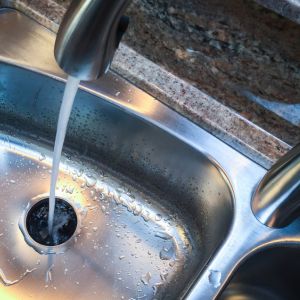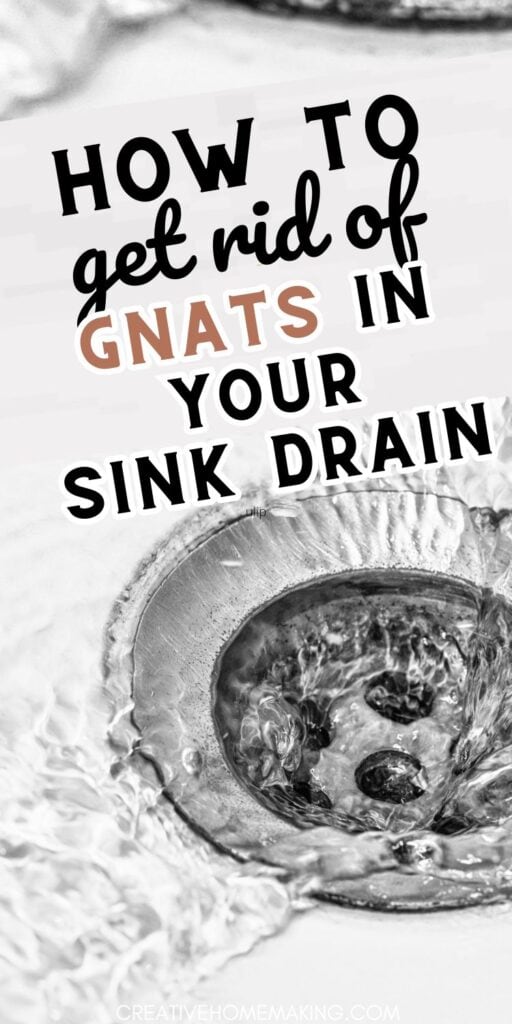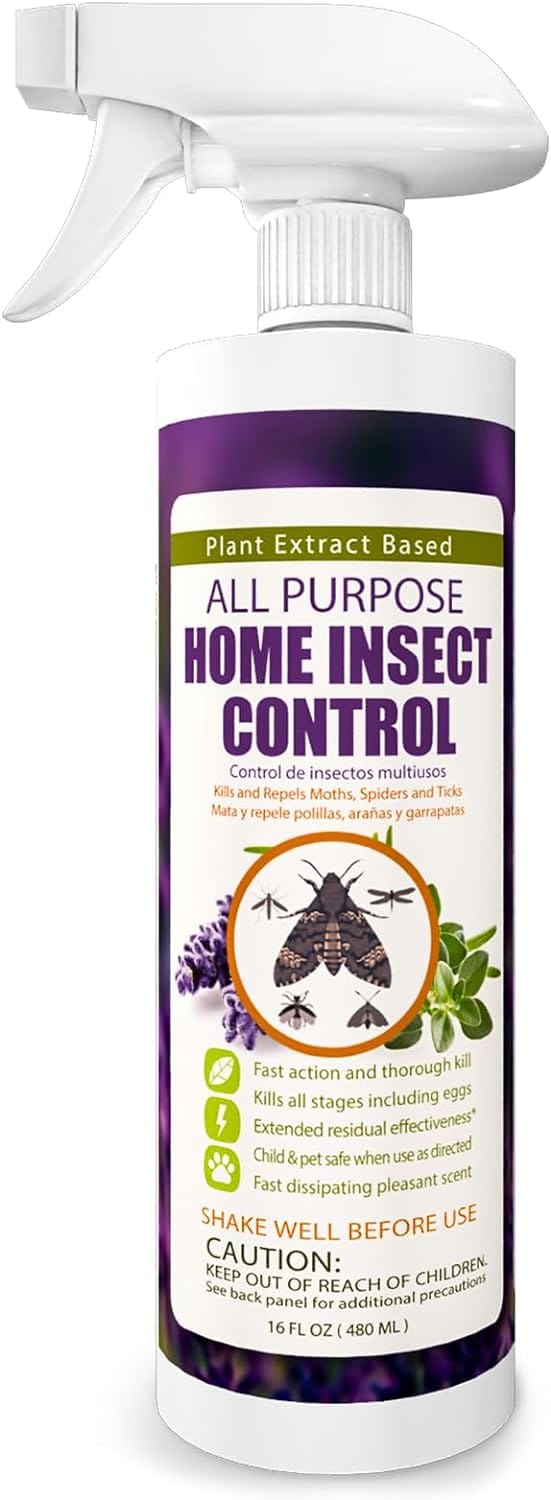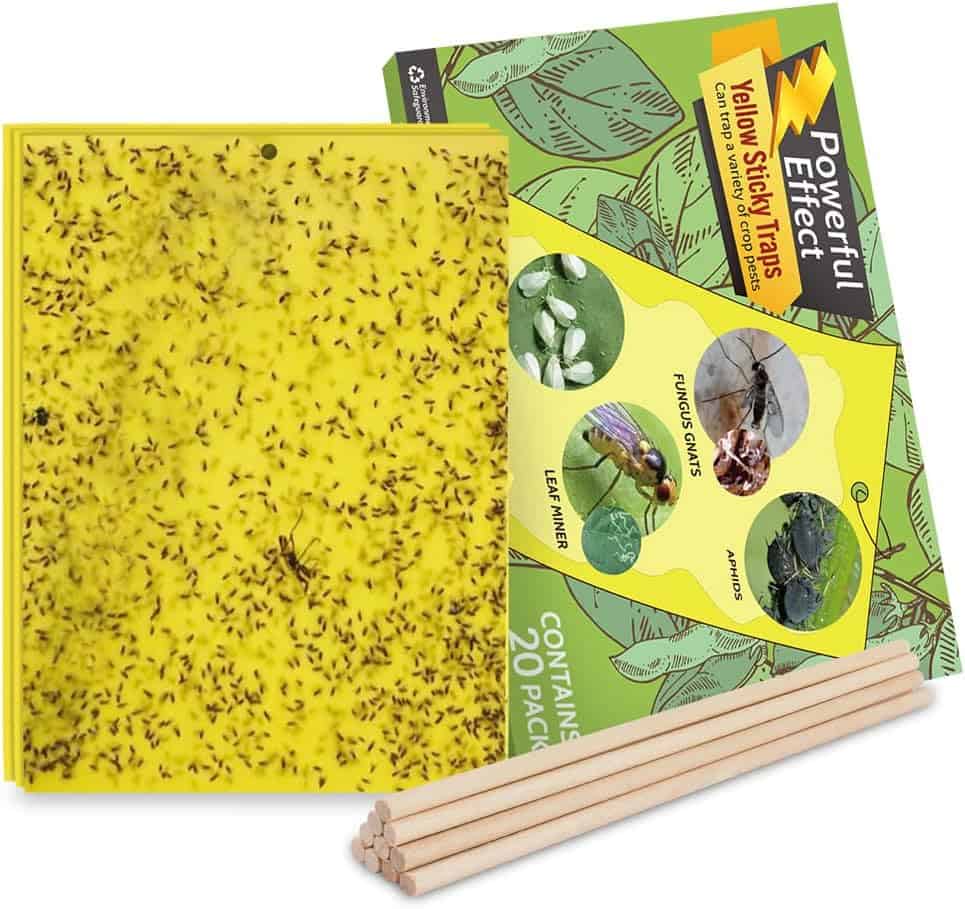Have you ever noticed tiny flying insects hovering around your sink drain? These pesky creatures are commonly known as gnats and are a common problem in many households.
This post may contain affiliate links.
Gnats are small, black or brown insects that are attracted to moist environments and organic matter, making sink drains the perfect breeding ground for them.
The presence of gnats in your sink drain can be quite frustrating, as they can quickly multiply and become a nuisance. Not only are they unsightly, but they can also carry bacteria and germs, posing a potential health risk.
Additionally, their constant buzzing and flying around can be quite distracting and irritating. If left untreated, a gnat infestation in your sink drain can quickly spread to other areas of your home, making it important to address the issue as soon as possible.
In this article, we will explore the causes of gnats in sink drains, the potential health risks they pose, and provide you with effective methods to get rid of them.
By following the tips and tricks outlined in this article, you can say goodbye to those pesky gnats and enjoy a clean and hygienic home.
Understanding Gnats in the Kitchen
If you have ever noticed tiny flying insects in your kitchen, they are most likely gnats. Gnats are a common nuisance in many households, and they can be difficult to get rid of once they have taken up residence in your home.
Here are some things you need to know about gnats in the kitchen.
Types of Gnats
There are several types of gnats that can infest your kitchen, including fruit flies, drain flies, and fungus gnats.
Fruit flies are attracted to ripe or rotting fruits and vegetables, while drain flies breed in moist areas like sink drains or garbage disposals. Fungus gnats, on the other hand, are attracted to damp soil and can be found in potted plants.
Breeding Habits
Gnats can breed quickly, and it only takes a few days for their eggs to hatch into larvae. Fruit flies lay their eggs in fruit or vegetable matter, while drain flies lay their eggs in the organic matter that accumulates in sink drains.
Fungus gnats lay their eggs in damp soil, and their larvae feed on the roots of plants.
To prevent gnats from breeding in your kitchen, it is important to keep your kitchen clean and dry. Make sure to clean up any spills or crumbs immediately, and don’t leave any fruit or vegetables out on the counter.
You should also regularly clean your sink drains and garbage disposal to prevent any organic matter from accumulating.
Common Causes of Gnat Infestation
Gnats are tiny flying insects that can be a nuisance in your home, especially when they start buzzing around your face. These pests can be found in many areas of your home, but they are commonly found in sink drains. Here are some common causes of gnat infestation in sink drains.
Organic Matter in Drains
Gnats are attracted to organic matter, such as food particles and grease, that can accumulate in your sink drain. When this organic matter builds up, it can create a breeding ground for gnats.
To prevent gnat infestation, it is important to clean your sink drain regularly and avoid pouring grease down the drain.
Overwatering Plants
Overwatering your plants can lead to excess moisture in the soil, which can attract gnats. These pests are attracted to moist environments, so it is important to avoid overwatering your plants.
Make sure your plants have proper drainage and only water them when the soil is dry to the touch.
Food Spills and Garbage
Gnats are also attracted to food spills and garbage. If you leave food out or have a garbage can that is not properly sealed, gnats can quickly become a problem. To prevent gnat infestation, make sure to clean up any food spills immediately and keep your garbage can sealed.
By understanding the common causes of gnat infestation in sink drains, you can take steps to prevent these pests from invading your home. Regular cleaning, proper plant care, and good sanitation practices can go a long way in keeping your home gnat-free.
Effective Gnat Removal Strategies
Dealing with gnats in your sink drain can be frustrating. These tiny insects can quickly multiply and become a nuisance in your home. Fortunately, there are several effective strategies you can use to get rid of gnats.
Natural Remedies
If you prefer to use natural remedies, there are several options available. One popular method is to create a vinegar trap. Simply fill a small bowl with apple cider vinegar and cover it with plastic wrap.
Use a fork to poke several holes in the plastic wrap. The gnats will be attracted to the vinegar and will become trapped in the bowl.
Another natural remedy is to use baking soda and vinegar. Pour a cup of baking soda down the drain, followed by a cup of vinegar.
Let the mixture sit for 10-15 minutes, then flush the drain with boiling water. This will help to break down any organic matter in the drain that may be attracting the gnats.
Chemical Solutions
If natural remedies don’t work, you may need to use a chemical solution. Insecticide sprays are effective at killing gnats, but they can be harmful to pets and children. Be sure to read the label carefully and follow all safety instructions.
Physical Traps
Physical traps are another effective way to get rid of gnats. Sticky traps can be purchased at most hardware stores and are easy to use. Simply place the trap near the sink and the gnats will become stuck to the adhesive.
Bug zappers are another option, but they can be noisy and may not be suitable for all homes. If you choose to use a bug zapper, be sure to place it away from any areas where people will be sleeping or relaxing.
By using one or more of these strategies, you can effectively get rid of gnats in your sink drain. Remember to be patient and persistent, as it may take several days to completely eliminate the infestation.
Preventive Measures to Keep Gnats Away
If you’re dealing with gnats in your sink drain, it’s important to take preventive measures to keep them away. Here are a few simple steps you can take to prevent gnats from infesting your kitchen:
Maintaining a Clean Kitchen
One of the most effective ways to prevent gnats is to keep your kitchen clean. Make sure to wipe down your counters and sink regularly, and avoid leaving dirty dishes in the sink for extended periods of time.
Additionally, make sure to clean up any spills or crumbs immediately, as these can attract gnats.
Proper Plant Care
House plants can be a breeding ground for gnats, so it’s important to take proper care of them. Make sure to water your plants only when necessary, and avoid overwatering.
You can also add a layer of sand or small stones to the top of the soil to help prevent gnats from breeding.
Securing Waste Disposal
Gnats are attracted to trash and other organic waste, so it’s important to secure your waste disposal properly. Make sure to use a trash can with a tight-fitting lid, and empty it regularly. You can also consider composting your food waste, as long as you do it properly.
Frequently Asked Questions
How can I naturally eliminate gnats from my bathroom sink?
There are several natural ways to get rid of gnats in your sink drain. One effective method is pouring boiling water down the drain, followed by a mixture of baking soda and vinegar.
You can also try using a mixture of lemon juice and water or a solution of essential oils like peppermint or tea tree oil.
What are the best methods to permanently remove drain gnats?
To permanently remove gnats from your sink drain, it’s important to identify and eliminate the source of the infestation. This may involve cleaning your drain pipes, repairing any leaks, and removing any standing water in your bathroom.
You can also use a drain fly gel or spray to kill any remaining gnats and prevent future infestations.
Why do gnats congregate around my sink drain and how can I stop them?
Gnats are attracted to moist environments and organic matter, which can accumulate in sink drains over time.
To stop gnats from congregating around your sink drain, it’s important to keep your bathroom clean and dry, fix any leaks, and regularly clean your drain pipes with a mixture of baking soda and vinegar.
Can vinegar solutions effectively get rid of gnats in sink drains?
Yes, vinegar solutions can be an effective way to get rid of gnats in sink drains. You can mix equal parts vinegar and water and pour it down the drain, or use a vinegar-based drain cleaner.
Vinegar helps to break down organic matter and kill any gnats or larvae in the drain.
What are safe and effective ways to kill drain flies in my home?
Safe and effective ways to kill drain flies in your home include using a drain fly gel or spray, pouring boiling water down the drain, and using a mixture of baking soda and vinegar.
It’s important to follow the instructions on any cleaning products you use and to wear gloves and protective gear as needed.
Is it possible to use bleach to eradicate gnats in my sink drain, and is it safe?
While bleach can be effective at killing gnats in sink drains, it’s not always the safest option. Bleach can be harmful to humans and pets if ingested or inhaled, and can also damage your plumbing over time.
It’s best to use natural cleaning solutions or seek professional help if you’re unsure about how to safely eliminate gnats from your sink drain.
Follow my cleaning hacks board on Pinterest.





